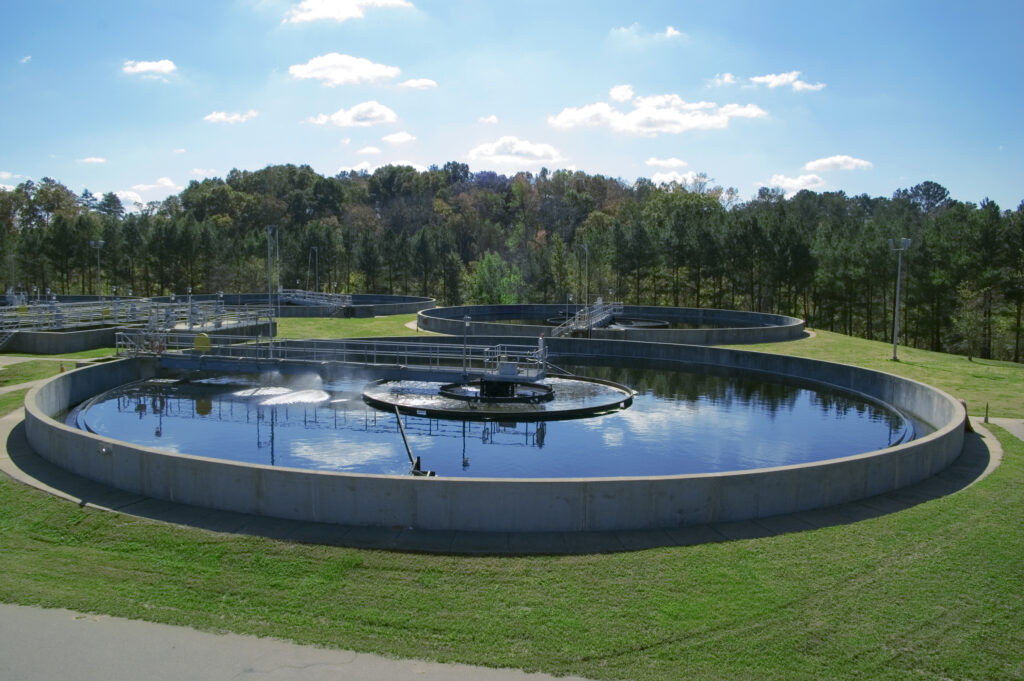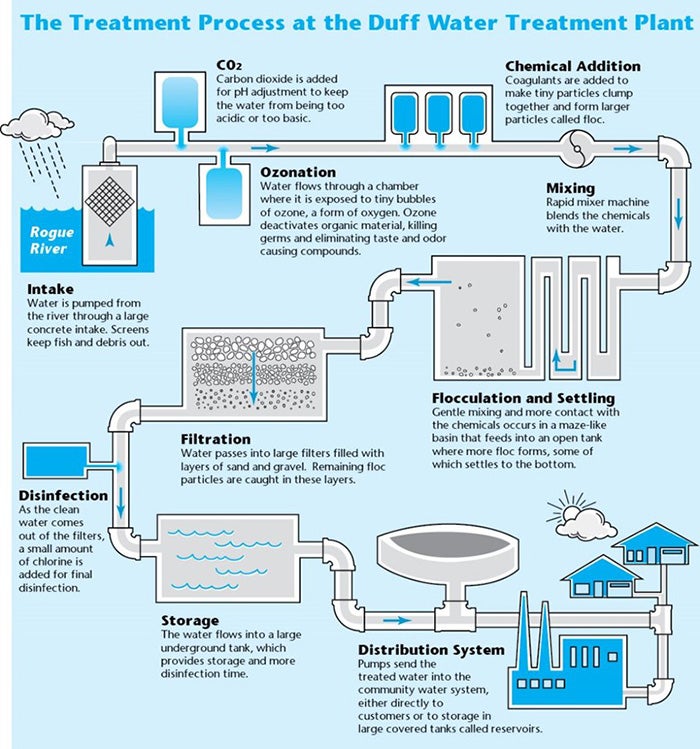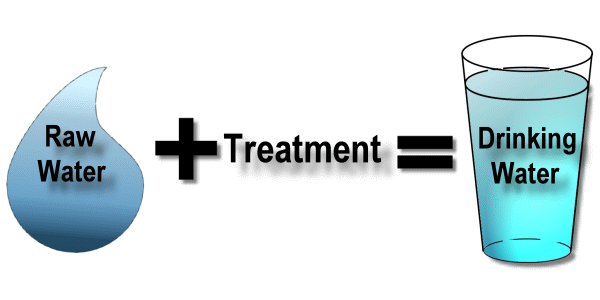Water Technology Startups: How to Choose a Strong Founder Team
Wiki Article
The Importance of Water Technology Startups in Resolving Global Water Obstacles
Water deficiency stays a pushing international issue, aggravated by climate adjustment and populace growth. In this context, water Technology start-ups arise as essential players, supplying cutting-edge remedies that enhance efficiency and sustainability. Their developments, from clever sensors to boosted desalination strategies, are improving water monitoring methods. Nevertheless, the extent of their influence and the challenges they face in cooperation with well established authorities raise vital concerns about the future of water accessibility and quality.The Current State of Worldwide Water Deficiency
As water deficiency increasingly becomes a pushing global concern, several regions are experiencing considerable stress on their water sources. According to recent research studies, over two billion people reside in nations facing high water tension, with forecasts indicating that this number can rise considerably in the coming years. Climate modification, populace growth, and insufficient infrastructure are worsening the circumstance, resulting in over-extraction of freshwater resources and diminishing groundwater levels. Agriculture, which makes up around 70% of international water usage, suffers from inefficient techniques, further stressing accessibility. Urban locations, particularly in developing nations, come to grips with aging systems that can not fulfill rising demands. This complex situation not only threatens human health and wellness however likewise weakens food safety and economic stability. The urgency to deal with water shortage has never been greater, compelling federal governments and organizations to look for sustainable services to handle and secure this essential source.Ingenious Solutions: How Startups Are Revolutionizing Water Management
Water Technology start-ups are presenting groundbreaking services that boost water administration practices. Advancements such as clever water sensors, progressed desalination techniques, and efficient wastewater recycling systems are reshaping exactly how water resources are used and preserved. These developments not just deal with current challenges but also lead the way for lasting water usage in the future.Smart Water Sensors
Developments in clever water sensing units are transforming water monitoring by giving precise data and real-time monitoring capacities. Startups are creating advanced sensor modern technologies that can identify leaks, screen water top quality, and maximize use in different environments. These sensors allow companies and towns to make informed choices regarding water conservation and framework maintenance. By using IoT connectivity, wise water sensors help with seamless information transmission and combination with existing administration systems. This not only boosts functional performance but also decreases costs connected with water loss and contamination. In addition, the scalability of these options enables widespread adoption, using a course toward sustainable water source monitoring. Generally, smart water sensors stand for a considerable innovation in addressing international water challenges.Desalination Innovations
While conventional desalination approaches have actually run the gauntlet for their high energy consumption and ecological effect, start-ups are introducing ingenious remedies that guarantee to transform this essential procedure. These business are developing sophisticated modern technologies such as solar-powered desalination systems, which harness renewable resource to decrease carbon impacts. Furthermore, some startups are exploring forward osmosis and membrane layer purification strategies, which substantially lower power needs compared to standard approaches. Developments in products science are leading to the creation of much more reliable membrane layers that improve water removal prices while reducing waste. By integrating artificial intelligence and equipment understanding, these start-ups additionally optimize functional effectiveness, making desalination more economical and sustainable. Jointly, these innovations indicate a change in the direction of a more feasible future in water management.
Wastewater Recycling Solutions
As the demand for sustainable water monitoring heightens, start-ups are arising with groundbreaking wastewater recycling services that guarantee to improve how areas approach water scarcity. These cutting-edge firms take advantage of progressed modern technologies such as membrane bioreactors and biological filtering systems to treat and repurpose wastewater for different applications, including farming irrigation and commercial procedures. By changing waste into a useful resource, these startups not just reduce the stress on freshwater resources however also add to environmental sustainability. In addition, a number of these options are developed for scalability, enabling neighborhoods of all dimensions to carry out effective recycling systems. As recognition of water shortage expands, the function of these startups becomes increasingly vital in promoting resistant water monitoring approaches worldwide.Study of Successful Water Technology Startups
The landscape of water Technology start-ups showcases remarkable improvements in innovative purification remedies and sustainable water administration methods. These firms have actually developed distinct approaches to attend to pushing water obstacles, showing their potential for considerable effect. By checking out particular instance studies, one can gain insights right into the approaches that have actually caused their success in the industry.Ingenious Filtering Solutions
Cutting-edge purification solutions have actually become a critical emphasis for water Technology start-ups, resolving the growing demand for tidy and risk-free drinking water. Business like Absolutely No Mass Water have originated solar-powered hydropanels that draw out dampness from the air, providing lasting drinking water in arid regions. Likewise, the start-up Aquasana has created innovative filtration systems that remove pollutants like lead and chlorine, ensuring higher water quality for homes. Another significant example click here is the startup LifeStraw, which creates portable water filters, ensuring drinking water obtainable in disaster-stricken locations. These instance researches highlight just how cutting-edge filtration modern technologies are transforming water availability and security, emphasizing the necessary duty of start-ups in taking on global water difficulties and improving public health outcomes worldwide.Lasting Water Administration
While the challenges of water shortage and inefficient usage linger worldwide, several start-ups are blazing a trail in sustainable water management. One notable example is a start-up that created a clever watering system, making use of data analytics to enhance water use in farming, markedly minimizing waste. Another instance includes a company that produced a modular rain harvesting system, allowing city locations to capture and make use of rainwater successfully, therefore minimizing pressure on community water supplies. Furthermore, a startup focused on wastewater recycling has efficiently implemented Technology that changes sewage into drinkable water, demonstrating an innovative technique to resource healing. These instance researches show how water Technology startups are not only attending to immediate water challenges yet likewise adding to lasting sustainability in water management.The Role of Technology in Water Quality Improvement
Developments in Technology are substantially changing water quality improvement initiatives around the world. Ingenious solutions, such as real-time tracking systems, make it possible for the detection of pollutants and contaminants, permitting for speedy reaction steps. These systems utilize sensors and information analytics to give actionable insights, making certain water resources continue to be safe for usage.
Additionally, advanced purification technologies, consisting of membrane filtering and UV disinfection, boost the removal of damaging microorganisms and chemicals from water products. Water Technology start-ups are pioneering these approaches, cleaning water more easily accessible and budget-friendly.
Man-made intelligence and maker learning are optimizing treatment procedures, anticipating prospective water high quality issues before they intensify. By using big data, these innovations help with educated decision-making for water monitoring, inevitably causing boosted public wellness outcomes. Jointly, these innovations highlight the crucial duty Technology plays in attending to global water high quality difficulties, fostering a much more resilient and sustainable future

Collaborations Between Startups and Established Water Authorities
As water quality challenges heighten, collaborations in between start-ups and established water authorities are ending up being important for effective options. Startups often bring ingenious modern technologies and active approaches, while developed authorities offer regulative understanding, funding, and infrastructure. These partnerships allow the quick deployment of novel solutions created to resolve specific water high quality issues. For example, start-ups can establish innovative filtration systems or real-time surveillance tools, while authorities can help with pilot programs that test these developments in real-world settings. By leveraging their respective staminas, both parties can increase the fostering of brand-new technologies, ultimately causing better water high quality and sustainability. Such partnerships foster knowledge exchange, helping start-ups to fine-tune their items based on practical obstacles and regulatory needs dealt with by water authorities. This synergy not only improves functional effectiveness yet also drives the improvement of water Technology overall, placing both startups and developed authorities as key players in tackling worldwide water dilemmas.The Future of Water Modern Technology: Forecasts and patterns
With increasing problems over water scarcity and top quality, the future of water Technology is positioned for transformative adjustments driven by advancement and sustainability. Emerging trends show a shift towards decentralized water management systems, which empower local areas and decrease dependence on large framework. Furthermore, improvements in smart water modern technologies, such as IoT sensors and information analytics, promise improved monitoring and performance in water use.Predictions suggest that water recycling and desalination modern technologies will certainly come to be extra widespread, resolving journalism demand for alternative water resources. The integration of sustainable energy in water treatment processes is anticipated to decrease prices and carbon footprints. As climate modification remains to effect water sources, the duty of startups in developing adaptive services will be vital. Ultimately, the merging of Technology and sustainability will shape a resilient water future, making sure fair access to clean water for all.
Regularly Asked Questions
What Are the Key Barriers for Water Technology Startups?
The major barriers for water Technology start-ups consist of high resources requirements, regulative obstacles, minimal access to financing, market fragmentation, and competitors from well-known business, which produce significant difficulties in scaling and attaining sustainability in their innovations.How Can Individuals Support Water Technology Innovations?

What Financing Options Exist for Water Startups?
Water startups can explore various financing options, including financial backing, federal government grants, crowdfunding, angel capitalists, and business collaborations. Each option uses one-of-a-kind benefits, allowing startups to safeguard vital resources for innovation and development in the market.What Skills Are Important for Operating In Water Modern Technology?
Important abilities for working in water Technology include design experience, data analysis, task monitoring, ecological scientific research expertise, and solid communication capacities. Adaptability and analytic skills are additionally vital for resolving complex water-related challenges efficiently.How Do Water Startups Influence Local Economies?
Water start-ups stimulate local economic situations by producing work, fostering development, and attracting financial investment. Water Technology Startups. Their solutions frequently enhance water administration, leading to improved public health and wellness and raised farming productivity, thus profiting the more comprehensive community financially and sociallyAs water shortage significantly ends up being a pushing global problem, numerous regions are experiencing substantial stress and anxiety on their water sources. Water Technology start-ups are presenting innovative options that enhance water management techniques. As the demand for sustainable water monitoring magnifies, start-ups are arising with groundbreaking wastewater recycling options that assure to improve exactly how communities approach water scarcity. The landscape of water Technology start-ups showcases remarkable innovations in ingenious filtration services and lasting water monitoring practices. One more notable instance is the start-up LifeStraw, which creates portable water filters, making safe drinking water obtainable in disaster-stricken locations.
Report this wiki page